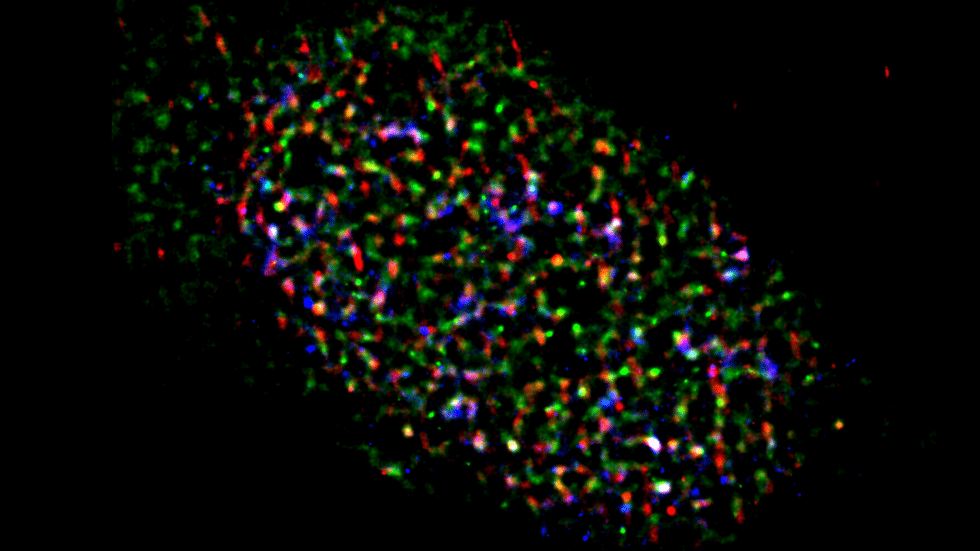In a recent research form Nagoya University breakthrough, researchers have uncovered a vital connection between cancer cells’ response to replication stress and Taurine Upregulated Gene 1 (TUG1) function. They regulated brain tumor growth in mice by employing a drug to target TUG1. This discovery offers a promising approach for tackling aggressive brain tumors like glioblastomas.
Lead researcher Professor Yutaka Kondo said, “These findings have the potential to be translated into therapeutic applications, as TUG1 is highly expressed in glioblastoma. In this study, we successfully developed a therapeutic drug named TUG1-DDS, which selectively targets TUG1. It significantly suppressed tumor growth and improved survival, especially when combined with the standard temozolomide treatment. Therefore, it is a potentially effective therapeutic agent for treating glioblastoma.”
Understanding how TUG1 might treat aggressive brain cancers requires insight into how cancer exploits normal cell processes for its benefit, even essential processes like DNA replication.
When a cell divides, it duplicates its DNA to ensure that both new cells have complete genetic information. This process involves unwinding and separating the double-stranded DNA into two single strands. These single strands act as templates to create identical copies by partnering with RNA. A vital structure called an R-loop, formed by DNA and RNA, assists in unwinding and stabilizing the DNA during this process.
Cancer cells disrupt this natural DNA replication process to create a favorable environment for their growth. They cause something called replication stress (RS), leading to breaking DNA strands and increasing unpaired single DNA strands. This instability in the genome benefits tumor growth.
Cancer cells face a complex challenge: while they need increased activity to thrive, it can also harm them. Excessive replication stress (RS) and the accumulation of R-loops DNA structures can lead to cancer cell death. Cancer cells use long noncoding RNAs (lncRNAs) to maintain their genetic balance, which helps repair their DNA damage and eliminate unwanted R-loops.
In a recent study by Yutaka Kondo and Miho Suzuki at Nagoya University Graduate School of Medicine, researchers discovered the role of the lncRNA TUG1. They found that TUG1 and two proteins, DHX9 and RPA32, suppress potentially harmful R-loops. This TUG1-RPA-DHX9 interaction is crucial for controlling R-loops in regions vulnerable to DNA damage and mutations. Their findings have been published in Nature Communications.

Kondo and Suzuki’s research showed that TUG1 quickly increased activity when replication stress (RS) occurred. When they lowered the levels of TUG1 in cancer cells, it resulted in significant DNA damage and cell death.
Dr. Suzuki said, “It was exciting to see the rapid increase in expression of TUG1 in response to replication stress. Normally, it takes several hours or more for proteins to increase in response to stimuli, but RNA can be synthesized rapidly. That TUG1, an RNA molecule, increases immediately in response to replication stress indicates that it is necessary to respond quickly to critical situations.”
These findings offer hope for potential treatments for various cancer types. Dr. Kondo points out that TUG1 inhibitors have shown promise in treating other cancers like pancreatic and ovarian cancer. Therefore, the newly developed treatment, TUG1-DDS, may also work effectively for cancers expressing TUG1.
Brain tumor treatment through targeting the TUG1 gene represents an innovative approach to address replication stress, a significant factor in cancer development and progression. Further research and clinical trials are necessary to validate the effectiveness and safety of TUG1-based therapies for human patients. If successful, this approach could offer a promising avenue for improving the treatment of brain tumors and potentially other cancer types characterized by replication stress.
Journal reference:
- Suzuki, M.M., Iijima, K., Ogami, K. et al. TUG1-mediated R-loop resolution at microsatellite loci as a prerequisite for cancer cell proliferation. Nature Communications. DOI: 10.1038/s41467-023-40243-8.
